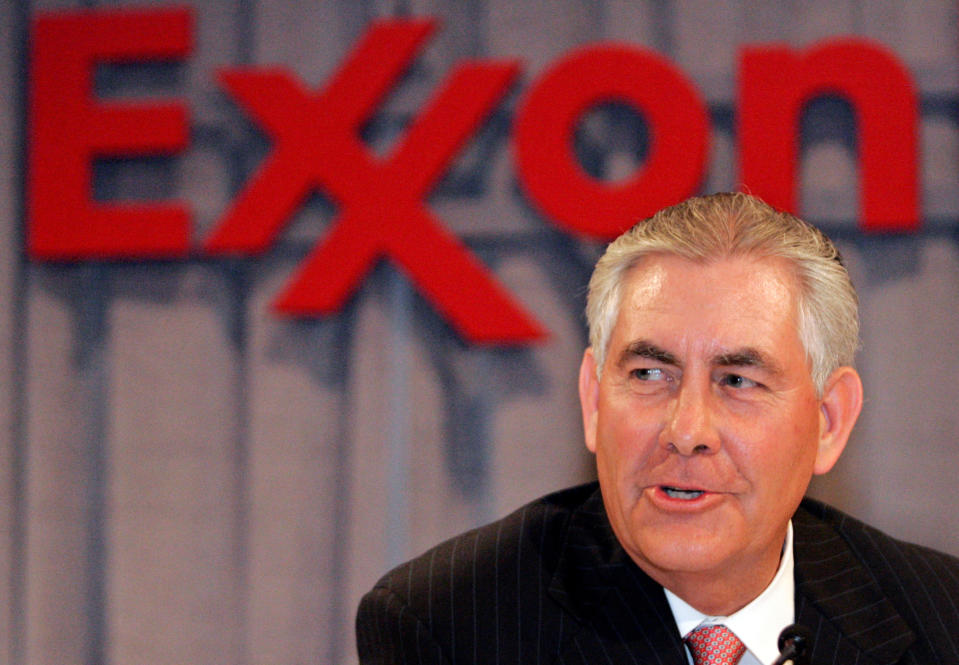Trump's exit from Paris climate deal is all about coal
From the White House’s Rose Garden on Thursday afternoon, President Donald Trump announced that the U.S. would withdraw from the Paris agreement on climate change. One of the largest influencing factors: coal.
The Paris agreement, signed by 195 members of the United Nations Framework Convention on Climate Change and ratified by 147, went into effect in November with the aim of tackling the global challenge of a warming Earth. Soon, the U.S. will join Nicaragua and Syria as the only three countries to not participate. (Yes, North Korea is onboard.)
The three aims of the convention: mitigating greenhouse gas emissions to reduce global warming to a safer threshold of within 2 degrees of pre-industrial levels; adapting to “adverse impacts” from climate change (think hurricanes and food shortages); and providing financing commitments to accomplish these goals, even for developing countries.

Adding a focus towards adaptation—addressing the symptoms, not simply the cause—was a significant change over the previous agreement, the 1992 Kyoto Protocol, which was a commitment to reduce emissions of greenhouse gases.
Paris’s commitment was groundbreaking in other major ways: it provided aframework to deal with climate change comprehensively; it required developing countries to contribute alongside developed countries; and it was built on consensus and volunteerism—it is not a treaty. This makes it possible for President Trump to unilaterally exit the agreement, and for other countries to follow the U.S.’s lead should they so choose.
It’s all about coal
Throughout his campaign, Trump made repeated promises to bring back coal—a strategy that won him West Virginia. When in office, Trump erased key Obama regulations to protect waterways from coal-mining waste in an effort to help the industry. Though the rule was praised by public health advocates, Trump referred to it as a “terrible job killing rule.”
In Trump’s comments in the Rose Garden, the President alluded to his commitment to coal and noted that he may attend the opening of a new coal plant in the coming weeks.
Coal production has been trending downward—it peaked in 2008—but the Paris agreement encourages further transition to other sources, something that conflicts with what he has said about coal. The agreement targets fossil fuel consumption—which emits carbon dioxide by definition—and since coal is one of the dirtier fuels, further reductions in coal would likely be in order.

On the other hand, the Trump administration’s Gary Cohn has told CNNMoney that “coal doesn’t even make that much sense anymore,” and extolled the virtues of renewable energy like wind—technology with which Trump has a long history and personal vendetta due to their aesthetics near his golf courses. However, Cohn said Trump has been considering both sides.
Perhaps unexpectedly, some coal companies have supported the Paris agreement. Cloud Peak Energy (CLD) CEO Colin Marshall urged the Trump administration to support the agreement, so the U.S. could “help shape a more rational international approach to climate policy.” Without involvement, Marshall, wrote, “failed international policies” of the last 25 years will continue. Continued involvement could rehabilitate coal, in Marshall’s view.
ExxonMobil supports the agreement
Joining Cloud Peak Energy is ExxonMobil (XOM). In March, the oil and gas giant sent the White House a letter, responding to an inquiry the Trump administration made into the company’s position. “ExxonMobil supports the Paris Agreement as an effective framework for addressing the risks of climate change,” wrote Peter W. Trelenberg, the petroleum company’s environmental policy manager.
Trelenberg extolled commitments from developing countries as well as the U.S. and other developed countries—likely of interest given Trump’s NATO comments—and reiterated the company’s support multiple times.

In the White House, according to the New York Times, ex-ExxonMobil CEO and current Secretary of State Rex Tillerson is lobbying Trump on Wednesday afternoon to stay in the agreement.
Coal also may explain why ExxonMobil’s holds this position. Instead of merely being an astute public relations move, emissions rules put more pressure on coal companies—Exxon’s competitors—than they do the oil and gas giant. Natural gas, a rapidly expanding sector for the industry, is one of the cleaner burning fuels.
What leaving the agreement will mean for coal and the agreement
Trump’s exit from the Paris agreement will likely have little effect on coal jobs. Coal production is on the decline, and the industry has collapsed. While Trump blamed what he called Obama’s “war on coal,” analysis from Columbia University researchers showed that a main culprits were a major drop in post-Great Recession electricity demand thanks to energy efficient technology, a natural gas boom, successes in renewable energy, and lower international demand for coal exports.

The report concludes that “President Trump’s efforts to roll back environmental regulations will not materially improve economic conditions in America’s coal communities.” And as the Council on Foreign Relations’s president Richard Haass noted Wednesday, the U.S. would have set its own goals under the Paris agreement, meaning the move would have “limited effect on economic growth” and indicates that the U.S. is “no longer ready to lead.”
Update 6/1/2017: This post was updated after Trump’s announcement.
—
Ethan Wolff-Mann is a writer at Yahoo Finance focusing on consumer issues, tech, and personal finance. Follow him on Twitter @ewolffmann. Got a tip? Send it to tips@yahoo-inc.com.
Read more:
Study shows how GOP plan would lower premiums: ditching costly, sick people
How the Obamacare repeal could affect your employer insurance
The biggest problem with robots taking jobs may not be unemployment—yet
What Facebook and Twitter think they know about you
Online savings accounts are raising rates. Big banks aren’t.

